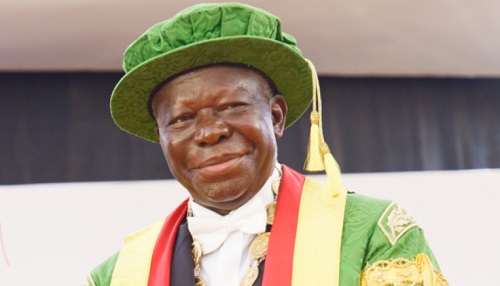The Minority in Parliament has kicked against the decision by the government and the Bank of Ghana (BoG) to allow the Agricultural Development Bank (ADB) to acquire the National Investment Bank (NIB).
It said instead of the acquisition and the subsequent liquidation of NIB, the government and the BoG must recapitalise NIB to make it more liquid.
It explained that NIB’s biggest challenge was the negative effects of the capitalisation deficit of GH¢2.4 billion.
The Minority, however, said a casual review of NIB’s balance sheet showed that restructuring the books could generate more than GH¢2.75 billion to clean up the GH¢2.4 billion deficit and free shareholders’ funds and equity of about GH¢350 million towards recapitalisation.
Resolve liquidity
Addressing the press in Parliament yesterday, the Ranking Member of the Finance Committee, Isaac Adongo, said: “It is, therefore, puzzling that anybody sitting on this gold mine will attempt to give it out to somebody for peanuts”.
“Resolve the liquidity and recapitalisation challenges of NIB to comply with the IMF extended facility (ECF) for a strong financial sector,” he said.
Mr Adongo said since 2017, NIB had loan impairments to the tune of about GH¢1 billion, resulting directly from non-payments of certificates raised for contractors and other service providers who took facilities from NIB to execute those contracts.
Those loans, he said, had been deemed non-performing and accordingly impaired and gone against NIB’S surpluses which were already in the negative spiral drive, according to international financial reporting standard.
“The government should pay these arrears.
It will automatically restore these impairments of GH¢1 billion, increase shareholders equity by GH¢2.75 billion and cash injection of Gh¢1.5 billion, making NIB the strongest and most liquid Bank in Ghana.
“The bank can sell the resultant bond converted into equity for additional cash of GH¢1.3 billion which will now become investment for the bank,” he said.
The Bolgatanga Central MP indicated that the NIB could now generate in excess of GH¢2.8 billion cash.
He said while he appreciated that the government’s fiscal wings had been clipped by the mismanagement of the country’s fiscal risks in the last few years, the government could aggregate certificates of NIB clients and issue a bond to NIB to cover same.
“Any residual capital issues if any at all, should be addressed by assigning some of the proposed GH¢15 billion Financial Stability Fund to BoG’s own Financial Investment Trust to invest in NIB instead of passing through the backdoor to give money to ADB to acquire the mother that gave birth to it.”
He added that unless there were ulterior motives, NIB should not be subjected to those predatory regulatory and boardroom antics.
Weakened NIB
The Ranking Member said the essence of the failed banking sector clean-up was to emancipate the indigenous banks and financial institutions with a huge dose of regulatory forbearance to keep several non-compliant financial institutions afloat, especially NIB which was owned by the government that continued “to operate from a very deep-hole”.
Mr Adongo said every viable and constructive alternative proposal by well-meaning Ghanaians aimed at resolving the challenges of NIB to retain and revive a largely systemic bank had been bluntly ignored.
He said some of the proposals that were ignored were still very important today.
They included the sale of NIB’s 24 per cent shares in Nestle Ghana acquired at GH¢50 million a long time ago that were given a conservative value of GH¢500 million in 2018.
“This singular proposal would have generated a risk-free cash of GH¢500 million to NIB and provided a capital gain of GH¢450 million for recapitalisation,” Mr Adongo said.
“Strangely, this was either ignored or lost on Ken Ofori-Atta, who rather opted to take the shares in Nestle and swap it with a GH¢500 million government bond, plus a further GH¢800 million government debt as deposit for shares,” the Finance Committee Ranking Member averred.
As it turned out, Mr Adongo stated, those bonds had since been impaired through the poor conduct of the Finance Minister in the infamous and unending domestic debt exchange programme (DDEP) consistent with international financial reporting standards (IFRS).
“These actions have clearly weakened NIB further,” he said, recalling how Mr Ofori-Atta’s refusal to pay contracts that were executed by clients of NIB with loans had led to an initial amount of GH¢860 million of NIB’s loans being written off from their books.
“It is clear that NIB has been intentionally run down by both fiscal and regulatory connivance to produce a prey.
“It is, therefore, not surprising that the current Extended Credit Facility programme of the International Monetary Fund identifies the resolution of the capitalisation challenges of NIB as a key financial sector deliverable,” Mr Adongo stated.
SOURCE: GraphicOnline







